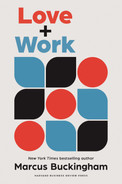
At my college they made you put on a cap and gown and then parade down the town’s main street—called King’s Parade—to the courthouse. Here your final exam results would be posted on the wall for the world to see whether you graduated, and if you did, how well you did. If you failed, there would be an S by your name. S stood for Special. It meant you weren’t. Typical British understatement.
And then, if you passed—I did, thank goodness—you and your muckers would run, run, run to the punt place, where you’d rent a punt for the afternoon, grab your picnic provisions, and punt your way up the River Cam to a small village of watery English fields and hedgerows called Grantchester.
That day, seven of us jumped into our punt and eased our way up the Cam, but we never got to Grantchester. We went slow, all of us just beginning to realize that as close as we were that day, soon we would all scatter. The safety and certainty we all felt with one another would soon be replaced with the stresses of the unseeing masses.
The punt slid slowly up the river. Kieran was at the helm—best punter ever, best juggler too, as it happens—but this time he took us too close to the bank. The trees stood strong as we passed by underneath. We all ducked the branches, laughing, clinging to the bread and cheese and warm English beer bottles. We hit the bank. I stood up, plimsolls sloshing in the bottom of the punt. My feet now gripping the edge of the punt, I pushed the dense curtain of weeping willow branches aside, and stepped right into Lincoln’s Greyhound bus terminal. One hundred one degrees Fahrenheit. Nebraska. Gallup. New people. New life.
Endings. They scare me. I don’t quite know why, but they do. In every book I write or every speech I craft, I get stuck at the end.
Endings feel final. Maybe I don’t like final. Of course, for the bad things I’m good with endings. But who wants to end something they love?
I loved writing this book for you.
Anyhow, here’s the end.
In 2006 I made a movie. Actually, Tom Rinks made it and I just babbled on about strengths and data. Oprah saw it. Tom’s the reason I was on her show. Tom was the founder and CEO of Sun Bum. America’s favorite sunscreen. That part has nothing to do with the story.
You might have seen the movie. You might even have used it as the foundation of strengths-based learning in your organization.
It was the story of a boy who faces a struggle we all face: he plays the trombone in the school band, for a bandleader he loves, but deep down what he really loves to do is play the timpani. So does he follow what he loves, and leave his bandleader in the lurch with no trombonist? Or does he stifle his love and conform to what everyone else wants him to do?
About halfway through the film, we see how he’s squared the circle. We see him scribbling on page after page in big blue marker. We can’t see what he’s writing, but we can see his joy that he’s figured something out. Then we cut to him sticking something on the back of the seats of his school bus, then on locker after locker, and then finally the camera finds one of these posters and zooms in. It’s just a blank sheet of paper on which he’d written “Trombone Player Wanted.”
“And there’s your title,” said Tom.
I loved the making of that film. Writing the script with Tom. Casting the parts. Finding our lead kid. Renting out the entire Walt Disney Concert Hall for five days and shooting in that womb of an auditorium.
My favorite moment though wasn’t the writing or the shooting. It was in the editing room. The very last shot. Right at the very final moment of filming, our lead had made a mistake. He accidentally looked straight into the camera.
Tom and I are watching the footage. The take was so perfect until that moment.
“Bollocks, we need to cut that. He broke the fourth wall,” I say.
“Are you kidding? This is a brilliant mistake.” Tom rewinds. “Watch. Look at the way he stares into the camera. I’m cutting everything after this and we’re ending this thing right here.”
“Wait, wha?” I was confused. This was not the plan. I’m a scientist. I needed more data.
“Look.” He rewinds for the sixth time. “His eyes. They are saying, ‘Over to you.’”
I wish I could insert that part of the film for you to see—by now I bet you can find it on YouTube. It’s the very last frame of the very last chapter of the film. His eyes were saying exactly that. We couldn’t have directed it more perfectly. He is handing it over to the viewer as if to say, “Take this, all of it, and do something with it.”
Well, we are at that part of the book together. I’m looking at you. Right at you, saying, “Over to you.”
This book has been all about you and how you can make sense of yourself and build a relationship with yourself based on love. I hope that has a huge benefit for you and how you choose to live your life.
Counterintuitively, though, one of the biggest changes you can make in the world is how you choose to see and understand others. The philosopher Jean-Paul Sartre, in his play No Exit, famously wrote that “Hell is other people.” By which he meant that other people are hellish because they are not you. Their motives, their intentions, and their interests are not yours. They get in the way of yours. They misunderstand you, misrepresent you, mislead you. Hell is other people.
What I hope this book has done for you is turn this upside-down. Other people are scary only because you don’t know them. But if these other people are like you—and they are—then they too have galaxies within them. They too have beautiful and intricate and unexpected patterns of loves and loathes. They too are different from anyone else of their country, their race, their gender, or even their own families. They too are a category of one.
Recent research into happiness reveals that of all the skills related to it, awe is the most highly correlated. Cultivate the skill of feeling awe—in the breathtaking expanse of a Midwestern sky at night, in the whorls and patterns of a cactus flower—and you feel less alone, less weighted down, lifted up out of the cares of your own life, and onto a higher, happier plane.
Other people can be a source of awe for you. Each person you meet is a wondrously complex creature, someone who will always reward your curiosity. Each time you ask an open-ended question and just listen, you’ll give that person the gift of being seen, and you’ll give yourself a chance to bring just a little more awe into your life.
So from now on, change how you think about introductions. Each time someone comes up to you, and you stiffen slightly, and prepare yourself to go through the nod-nod-shake-shake, catch yourself. Each introduction doesn’t have to be an empty ritual. It can be something momentous. Not an icebreaker, but a landing on the shore of an undiscovered country. An entry into something more, something wild, and complex, and intricate, and one-of-a-kind. Each introduction is an invitation for you to enter a whole new galaxy.
Hell is other people? No, seen through the lens of love, heaven is other people. Your lens is up to you.
Hi, I’m Marcus and it’s lovely to meet you.
